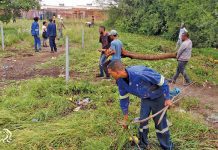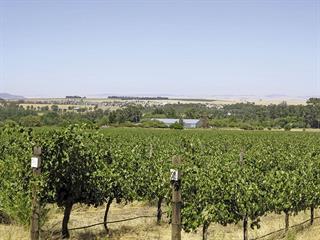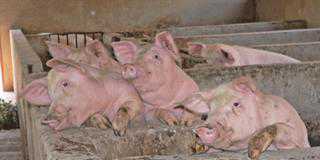A staggering number of land reform farms across the country have failed, while many others struggle to keep afloat due to lack of financial support, skills and markets. But in the Free State, farmers, agribusinesses, farmer unions and commodity groups have stepped forward to make a success of the land reform process.
Working hand in hand, Free State Agri and Grain SA provide technical support, while agribusinesses, such as OVK and VKB, make production loans available to farmers. Recently, Free State Agri organised a special day to highlight land reform in the province. The union’s land reform and AgriBEE committee invited various stakeholders, including government officials, to visit three successful, previously disadvantaged, farmers in the Ficksburg/Senekal region.The farmers shared their experiences.
Isak Khuto
Isak Khuto was a 2009 Grain SA Developing Grain Producer of the Year finalist. He produces grain and runs 71 head of cattle and 149 sheep on a 230ha farm that he bought outside Ficksburg. He plants 153ha rainfed grain.Average maize yields are about 5t/ha.“I bought and moved onto the farm in 1998,” he says. He’s already paid off the farm and is looking to expand his business.
Isak says the two key factors to his success are hard work and the relationship he has with the commercial farmers around him. When he moved onto the farm he had nothing but his livestock, and his neighbour helped him kickstart his grain farming operation.
“He provided advice and implements, and even let me use some of his land at no cost,” says Isak.Isak is one of the success stories to come out of Grain SA’s farmer development and mentorship programme, funded by the Maize Trust. He says without people like Johan Kriel, a former farmer and currently coordinator of the mentorship programme in the Free State, he wouldn’t be where he is today. “Emerging farmers need mentors who will guide them to success,” says Isak.
William Matasane
“If it weren’t for my neighbours’ help, I wouldn’t be where I am today,” says William Matasane, the 2010 Grain SA/ABSA Developing Grain Producer of the year. In 2004, after years working as a waiter and then as a restaurant manager, William bought the 400ha farm Verblyden outside Senekal in the eastern Free State. He has long finished paying off the farm, which he bought with a Land Bank loan. In fact, William now leases additional land from other farmers, where he plants his grain, and municipal land for grazing.
He has more than 100 cattle and 30 sheep. Last year, he planted 110ha maize and 145ha sunflower on his farm, and 60ha maize and 75ha sunflower on leased land in Ventersburg. His sunflower crop paid all the production costs of the previous crop. When he first bought the farm, he didn’t know where to start because he only knew a bit about cattle. “I knew nothing about grain farming, and had no equipment,” he says.
Then neighbour Philip Basson came to his rescue. “In my first year, I used his implements and resources to help plough my lands without any payment,” recalls William. He says it’s important that black and white farmers work together, because there’s a lot of skills and knowledge transfer to be done. Like Isak Khuto, he’s found the support from Grain SA, through Johan Kriel, especially helpful. “Farmers should join commodity structures such as Grain SA for support and training,” he says.
Kabelo Agricultural Limited
Last year, Jan de Villiers, the owner of Welhemina Farm outside Ficksburg, decided to retire. He didn’t have any sons, so he sold the farm to his workers. “I decided they would be the best people to continue my legacy on the farm,” he explains.The Department of Rural Development and Land Reform bought the farm under a trust for his employees, and Kabelo Agricultural Limited (KAL) was born.
KAL consists of the 18 members of the Welhemina Trust. The farm produces fresh cherries and dried fruit for the informal and retail markets around South Africa. Informal markets buy about 400t to 600t per year. Grain and beef are also produced.KAL wasn’t provided working capital when the farm was transferred to them, but through hard work and dedication, the company managed to keep afloat.
“We went months without any salaries to build up the farm,” says KAL chairperson Diphara Blankwe. And the trees weren’t in the best condition, as they hadn’t received adequate inputs, especially fertiliser. Jan continues to mentor the members of KAL.
Successful farming
Through hard work and perseverance, these farmers are making it. But they all agree they wouldn’t have stood a chance if it weren’t for the help of commercial farmers, agribusinesses, farmers’ unions and commodity groups.













